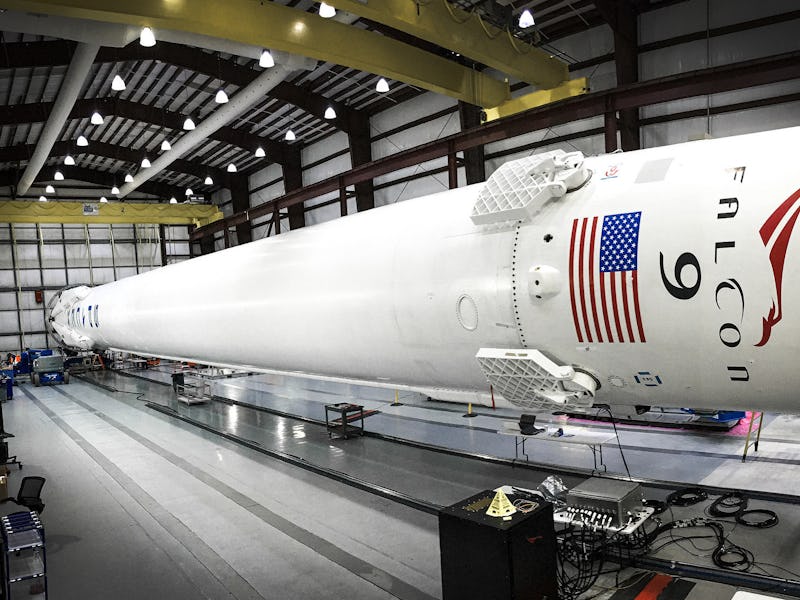SpaceX just achieved a big new milestone in its mission to bring rocket costs down and fund a trip to Mars. CEO Elon Musk shared news on his Twitter page Monday morning of the company’s successful launch of the SES-12 satellite into geostationary orbit.
The launch that took place from Cape Canaveral in Florida was unique in that it mixed both new and old parts, with the re-used Block 4 clearing the first stage of the mission in its final use while the new Block 5 clears the second stage. The mission carried an Airbus Defense and Space-manufactured satellite geosynchronous orbit to provide data services to Asia-Pacific and the Middle East, but the company did not deploy its Of Course I Still Love You drone-ship to recover the first stage booster after launch.
Reusing rockets is a key aspect of SpaceX’s mission. While the entire Falcon 9 booster costs $62 million, the fueling only makes up around $200,000 to $300,000 of that cost. Reusing the first stage booster saves around $46.5 million, and the company is working on saving the rest of that figure. In March, the company was able to recover a $6 million nose cone from the SES-10 launch.
The company is also working to make its rockets more effective. SpaceX has already launched a fully Block 5-based rocket with the Bangabandhu Satellite-1 on May 11, Bangladesh’s first geostationary communications satellite. The upgrade is aimed at hosting 10 or more flights with very little refurbishment. The upgrades for the second stage booster enable the Merlin engine to fire for up to five seconds more during its second burn, which could give the satellite around seven more years of life in geostationary orbit.
These advancements are building to a future planned mission to Mars, with an unmanned mission scheduled for 2022 and a manned mission just two years later in 2024. These will use the BFR rocket, comprised of 31 Raptor engines, to move further than ever before and refuel when explorers arrive on the red planet.
Satellites today, interplanetary space exploration tomorrow.
